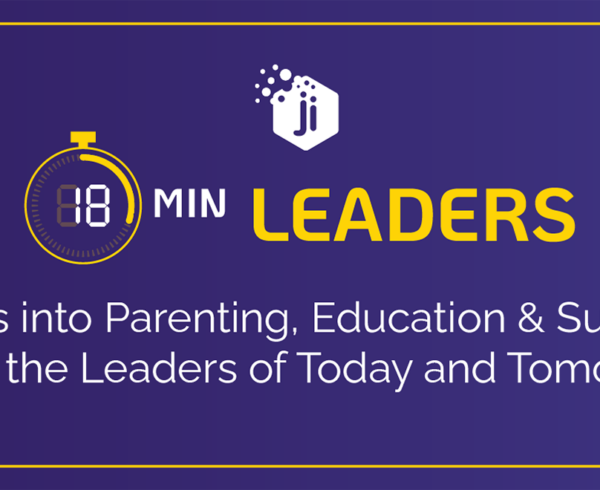At the end of the past school year, I shared my experience “un-schooling” my classroom and giving a final on Twitter (You can read all about that here). Over the summer, I worked with my wonderful colleagues Rabbi Daniel Rosen and Mrs. Meryl Feldblum to create a project-based learning curriculum for The Frisch School‘s Honors Sophomore classes. One of the assessments and experiences we wanted our students to have was a Twitter chat that would have them reflect on the lessons they had learned about the first part of the school year, which will be about stock characters, stereotypes, and how literature gives voice to the voiceless.
We weighed the pros and cons of a Twitter assessment over other types of evaluations and decided to take our dialogue public in case other teachers wanted to learn from it. Before we share what we’ve been contemplating, we wanted to point to other educators finding uses for Twitter in a school setting:
How (and Why) to Try Twitter Teams in School
My Twitter Chat Basics:
1) How exactly do you run a Twitter chat for your students?
Note: This is our way. What is your way? There is no the way. (#Nietzscheintheclassroom)
Step One: If you don’t know what a Twitter chat is, check out this blog post to find out, and think about the ways you’ll be adapting the forum for your classroom.
Step Two: Make sure all your students have a Twitter account, and read these helpful safety tips: Twitter Safety Tips for Teachers. I found it useful that my students had already tweeted to me early on in the year, and we practiced having a discussion before the exam.
Step Three: Choose a hashtag for the chat. This is obviously an important step, since you’ll all be tweeting to the hashtag. Our hashtag was #10final. Here are examples of tweets from before and on the day of the final:
An important lesson from this year’s curriculum bc It has allowed me to think outside the box, against the normal rules of school.. #10final— Benni Tuchman (@BenniTuchman1) May 31, 2013
@tikvahwiener Let’s get this final started!!! #10final
— Rachel Markowitz (@ILove10HEnglish) June 14, 2013
Step Four: Teach your students what a Twitter chat is. I’ve learned so much from my Twitter PLN, #jedchat, and I explained what it was to my students as an example of the kind of roundtable discussion we would be having. Vicki Berhman of Behrman House pointed out that the Twitter final sounded a lot like the Harkness Method of teaching, and I wholeheartedly agree. Check out some ideas about the Harkness model, which emphasizes a collaborative, student-centered approach to having class discussions.
| Notice how engaged and happy students look as they take their Twitter exam!? |
Step Four: Have everyone be in the same room for the Twitter chat. I know this sounds strange, given the fact that one of the advantages of a Twitter chat is that no one has to be in the same place. I found that part of the excitement of the medium was having everyone present. I was able to gauge student interest, participation, and knowledge not only from what the students tweeted but also from what they were saying and doing during the hour-long chat. Students were excitedly responding to each other and calling out ideas they wanted to share as they tweeted. Because the exam format is a new one, being in the same room allowed me to answer questions students had about the format and to solve technological glitches.
2) How is a Twitter chat different from a well-moderated class discussion?
A Twitter chat is different in a number of ways:
One: It has more authentic purpose than a class discussion, since it can be seen by a large audience. In fact, I asked members of my PLN to join the chat, and four colleagues did so, adding a layer of complexity, relevance, and fun that a class discussion wouldn’t have had. Ken Gordon, PEJE’s Social Media Manager, a JEDLAB co-creator, and a book aficionado, challenged the students to think more deeply about the books they had read, and because he is so funny, made them see they could laugh about characters as serious as Jay Gatsby. Yechiel Hoffman, another JEDLAB co-creator, Adrian Durlester, a JEDLAB facilitator, and Charles Cohen, Manager of PEJE’s Affordability Knowledge Center, also joined the Twitter chat, making the students feel that what they were doing and saying was important. My class definitely felt more heard and validated because of the involvement of my colleagues, some of whose tweets you can see here:
This became apparent to me even before the final, as the students and I spent time trying to figure out what kind of authentic assessment we wanted to have for the end of the year. When we decided on the Twitter chat, I asked a student what she thought of it. She said, “I get it. We’re making the final together.” Because project-based learning, what the class had engaged in all year, focuses so much on content creation, no response could have pleased me more. The student saw the final as a collaborative act of meaningful creation.
To reinforce the feeling, I archived the chat immediately after the final and shared the archive with the students on the Facebook group we had created. The post immediately received a whole bunch of Likes. You can see the archive here.
Three: The chat created joyful learning. I’m a big proponent of making learning joyful and fun, and the chat did just that. I realize it was partly because it was a new toy, and if we did it all the time and if every assessment was on Twitter, it would quickly lose its shine. However, employed as it was, after a year of PBL and with the consent and buy-in from the students, it was a huge success. Not only were the students excited during the chat, but they went home after the final and told their parents about it; for a few days after the exam parents in the community who saw me stopped me and let me know how much fun their kids had had. I always want learning to be that exciting.
Four: No doubt, well-run discussions force students to think deeply about a subject and challenge them to question their opinions and beliefs, and I still think class discussions are valuable in the same way that frontal teaching still has a place in the classroom, even a PBL one. What I liked about the Twitter chat was that students didn’t have to adhere to one discussion thread at a time. I threw out questions, and the students answered them as well as each other’s responses, so that the discussion was at once contained but free to move in diverse places. Still, the chat stayed relevant to our school year, spiraling around its major themes and creating a harmony of ideas about whether one should pursue utopias; the ability to manage lust and longing; Western hierarchies and classism; and the role we as Americans should play in the world. Here’s a taste of what the chat was like:
madmillertary: CD* also shows that a utopia can be different for different people and
one person’s utopia can be different than someone else’s #10final
6/14/2013 1:45:17 PM
* CD stands for Candide by Voltaire
jrosen97: @AjulianK @madmillertary i don’t think there is such a thing as a “perfect
world” nothing is ever as perfect as it seems #10final
6/14/2013 1:46:39 PM
dzuck0114: A complete U/dystopia is not possible. CD and 84* show that always in
society there will be upper/lower classes.@bennituchman #10final
6/14/2013 1:49:13 PM
*84 stands for 1984
swimer123: The books we read this year were very European and class based.gave me
a greater appreciation for America #10final
6/14/2013 1:49:47 PM
ILove10HEnglish: @ILove10HEnglish: @TikvahWiener we’re all stuck in a bubble and
must open our minds to the larger problems in the world! #africa #10final
6/14/2013 1:51:08 PM
dzuck0114: @swimer123 @bennyweisbrot @tikvahwiener They [books] show us that it is
human nature to lust for what they [people] can’t have. #10final
6/14/2013 2:31:24 PM
livmylife1: @swimer123 #10final I agree that Adam and Eve show that man always
wants more
6/14/2013 2:31:31 PM
jrosen97: @TikvahWiener @livmylife1 #10final But in sonnet 116, the enjambment
shows his [Shakespeare’s] continuation of his thought on true love, not physical love.
6/14/2013 2:33:16 PM
bennituchman: @TikvahWiener Judaism disciplines us and makes us choose what is
best for us even is it is contrary to what people initially want #10final
6/14/2013 2:33:59 PM
solomonrapoport: @swimer123 but that brings us back to the point of reaching for the
impossible. If u try for a perfect life, ull get a full life. #10final
6/14/2013 2:36:12 PM
madmillertary: @TikvahWiener @solomonrapoport life needs its flaws and mistakes,
you don’t live a full life unless you learn from them #10final
6/14/2013 2:38:56 PM
What I found was that the students made comments that were far deeper and richer than I expected and did so in a natural and organic way. Which leads me to my next benefit . . . .
Five: Digital Literacy. The students saw that an online forum can be a dynamic place to exchange views not about the tawdriness of Miley Cyrus’ twerking but about matters of deep significance to themselves and the world. They adhered to the rules of netiquette, which we had reviewed only minimally, agreeing and disagreeing with each other respectfully, and making social media a place for lively, sophisticated, and engaged dialogue about important, soul-deep matters.
bennituchman: I’m ready to discuss and respond to each other #10final
6/14/2013 1:36:30 PM
solomonrapoport: @AjulianK I disagree. He finds his version of a “utopia,” although it
may not seem ideal #10final
6/14/2013 1:43:12 PM
AjulianK: @solomonrapoport I wrote how he finds a good society. But it doesn’t fulfill
his criteria of a utopia #10final
6/14/2013 1:44:01 PM
jrosen97: @swimer123 #10final but doesn’t it make you realize how corrupt society is?
including america?
6/14/2013 1:51:12 PM
dzuck0114: @BennyWeisbrot I dont agree. Although book is described as dystopia,
would the Inner Party say that they live in a dystopia? #10final
Six: If you’re into Big Data, a Twitter chat supplies it in a way that a discussion only vaguely does. What was interesting to me was that the students who participated most in class were generally the ones who tweeted the most. Generally. Not all. And I have the stats to prove it:
Top User Analytics
Word Cloud Visualization
Twitter Hashtag Analytics
Now that I have this information, I know how to set up an even more effective Twitter chat next time, by showing my students exactly what I’ll be looking for and what they can do to make an impact in their chat.
In fact, here’s my new Twitter chat rubric. I’d appreciate feedback on it.
|
Score
|
Quantity of Tweets
|
Quality of Tweets
|
Response
|
Creativity and Originality
|
|
5
|
Tweeted 40-50 times
|
Made deeply insightful comments
about the literary works, their contexts, and the way the works applied to the world and to the self |
Responded to moderator, fellow
classmates, and chat participants; initiated discussions based on others’ responses |
Led discussion into places that
were surprisingly deep, thoughtful, creative, and fun. Introduced information from other disciplines into the discussion |
|
4
|
Tweeted 31-39 times
|
Made insightful comments about the works, their contexts,
and/or the way the works applied to the world and to the self |
Responded well and enthusiastically to moderator,
classmates, and chat participants |
Led discussion into places that were deep, thoughtful,
creative, and fun (DTCF) or introduced other disciplines into the discussion |
|
3
|
Tweeted 21-30 times
|
Made adequate comments about the
works, their contexts, and/or the way the works applied to the world and to the self; some information may be inaccurate |
Responded consistently to
moderator but inconsistently to classmates and chat participants or vice versa |
Elaborated well on comments that
led the discussion into DTCF places or that showed multi-disciplinary thinking |
|
2
|
Tweeted 11-20 times
|
Made insufficient comments about the works, their
contexts, and/or the way the works applied to the world and to the self; a number of observations were inaccurate |
Responded inconsistently to moderator, classmates, and
chat participants |
Elaborated inconsistently on comments that were DTCF and
/or multi-disciplinary |
|
1
|
Tweeted 1-10 times
|
Comments showed faulty
understanding of works, their contexts, and/or the world; much inaccurate information |
Rarely responded to moderator,
classmates, and chat participants. Was perhaps playing Fantasy Football or doing online shopping during the chat |
Did not follow the discussion into
places that were DTCF and/or multi-disciplinary. Seemed lost and confused |
What about Grammar, Spelling, and Punctuation?
As you can tell, I wasn’t as concerned with the mechanics of writing as I would be in an essay. I did tell students that they couldn’t use the wrong forms of its and it’s and their and there and that I wanted them to make some sort of grammatical sense in their syntax, but a Twitter chat isn’t the ideal place to teach proper mechanics. About two weeks before the final, the students had handed in a five-page term paper on one of Shakespeare’s sonnets, and they had had multiple opportunities to write and revise their writing throughout the year. My aims for the Twitter chat were different, but I do see digital literacy as an important part of any classroom, not just an English one, so I was satisfied that the forum was an appropriate one for my purposes.
Ready to Try?
If you want to ask additional questions about this assessment format, feel free to contact me at [email protected]. But if you have some experience on Twitter and want to give this a try, I can assure you you and your students won’t be disappointed. And please let me know how it goes!










Leave a Comment